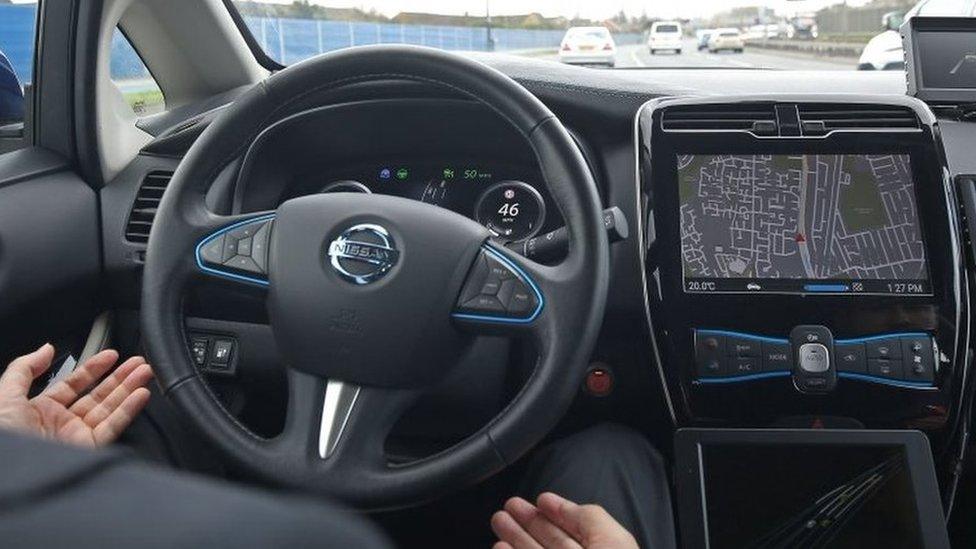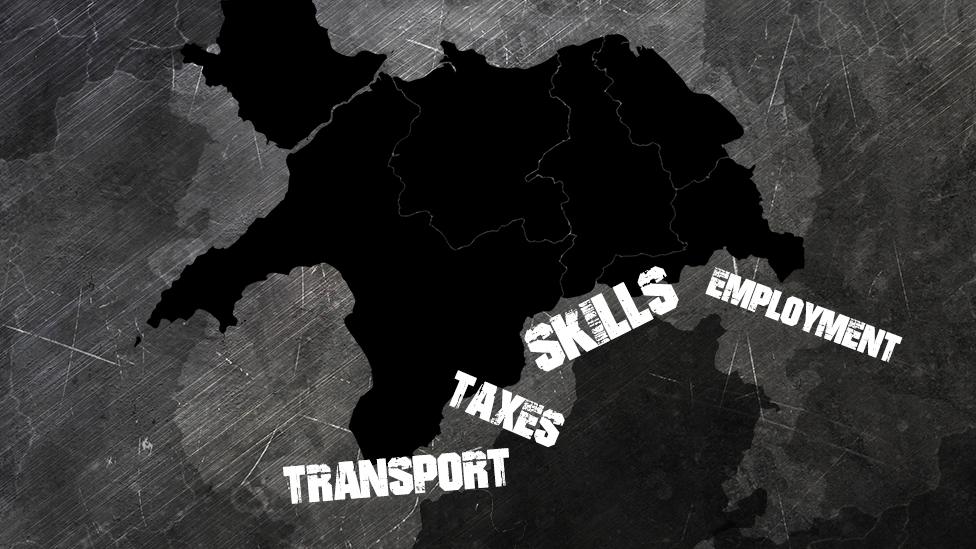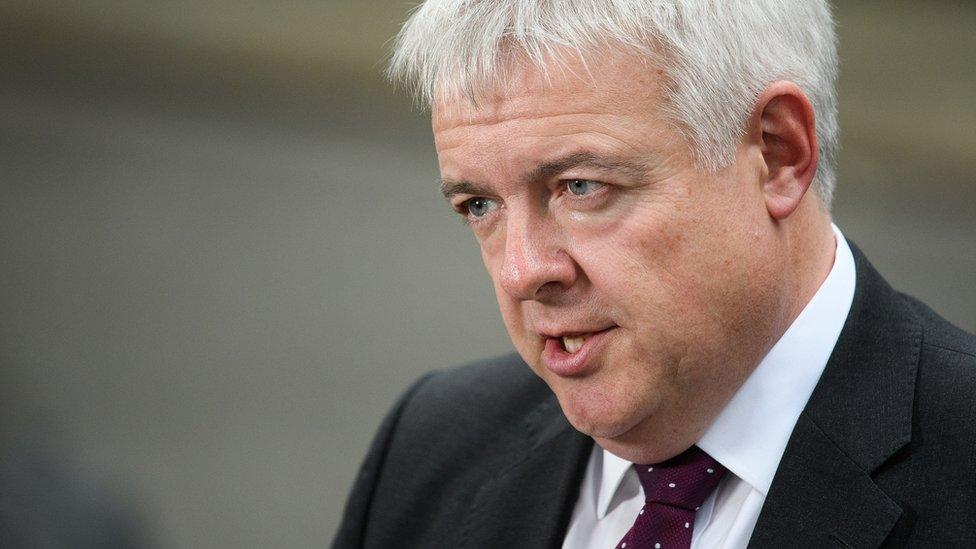Theresa May signs £1.3bn Swansea Bay City deal
- Published
- comments
Theresa May: "People want a country that works for everyone"
Prime Minister Theresa May has signed off the Swansea Bay City Region deal, insisting she wants Wales "at the forefront of science and innovation".
The plan is expected to create more than 9,000 jobs and trigger almost £1.3bn of investment in south west Wales.
Mrs May said the deal would help show a country which "works for everyone".
It comes as First Minister Carwyn Jones told the Guardian Mrs May had a "tin ear" on issues of devolution.
Downing Street said Mrs May's visits to the four UK nations, which began in Wales, would ensure the government was "engaging and listening to people from right across the nation" as it prepared to leave the European Union.
BBC Wales economics correspondent Sarah Dickins explains about what the city deal aims to bring
Mrs May and Mr Jones joined the leaders of four councils - Carmarthenshire, Neath Port Talbot, Pembrokeshire and Swansea - to sign the deal at Swansea's Liberty Stadium on Monday.
Speaking at the ceremony, the prime minister said last June's Brexit referendum vote was not just about leaving the EU, but about voters wanting "a change in the way the country works".
"It is part of our plan for Britain," she said.
"It's important for this part of Wales. It will be about ensuring that prosperity, growth, that opportunity is available to everyone."
Carwyn Jones says it is best when governments co-operate
Mr Jones added: "I'm a strong believer that we are at our best when governments co-operate. Today is a good example of that."
As well as meeting the first minister, Mrs May met representatives from a range of sectors and businesses during the visit.

What is the Swansea Bay City Region Deal?
£1.3bn of private and public money to be spent over 15 years
£241m from UK and Welsh governments, £360m from the public sector and universities, and another £673m in private investment
Four councils - Carmarthenshire, Neath Port Talbot, Pembrokeshire and Swansea - taking part
Eleven projects including: a "cloud" enterprise zone to attract data companies; using the internet to improve health diagnostics; a steel science centre

Speaking ahead of the signing, Mr Jones said it was a "transformative deal that will drive the regional economy in a new direction, supported by high-quality jobs and a digital infrastructure".
Rob Stewart, leader of Swansea council and the city region, said: "This is among the biggest investments Wales has ever seen, so it's a historic day for the Swansea Bay City Region."
There was criticism of the deal, however.
Dylan Jones-Evans said the Swansea Bay City Region Deal was based on a "discredited strategy"
Prof Dylan Jones-Evans from Bristol Business School said that while the deal was "vitally important", the deal's strategy was "very different" to that originally proposed by tycoon Sir Terry Matthews.
Mr Jones-Evans said the deal had gone away from "investing in infrastructure and people" towards "building more buildings".
"It is a strategy that has been discredited by economic development organisations around the world," he said.
"The question is why they are doing it here in Swansea Bay."

A prototype driverless car in London - 5G technology in the Swansea Bay city deal could make this possible
Analysis by Sarah Dickins, BBC Wales economics correspondent
"The internet coast" may sound like a slightly over-ambitious title for the change it is hoped the Swansea Bay City Deal could bring, when in some parts of the region people struggle with a weak mobile signal.
But if the ambition for the bay area to be a test-bed for 5G technology is realised, then we can imagine a whole raft of other industries developing.
5G would work through Wi-Fi routers not masts, which is the case with 3G technology. This would make coverage much more robust.
The massively increased speed of 5G would also make virtual reality more accessible and pave the way for the software for driverless cars to operate.
For Wales, that could significantly help existing industries such as life sciences and the automotive sector.
As the car industry invests in driverless cars, the existence of 5G would make south west Wales a more attractive place for businesses in that sector to develop.
Similarly, 5G could enable high definition video which would enable more detailed health care monitoring.
- Published7 March 2017

- Published14 March 2017

- Published20 March 2017
